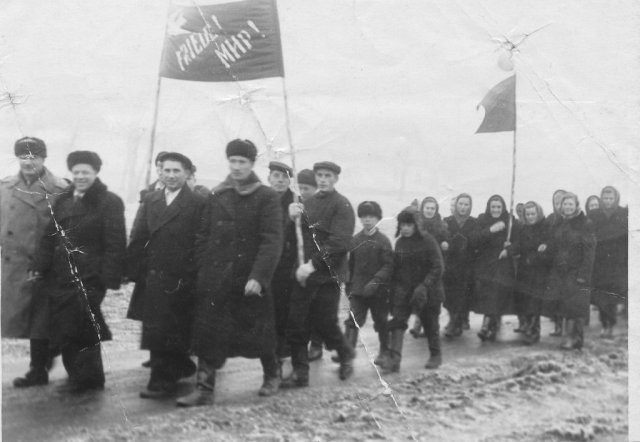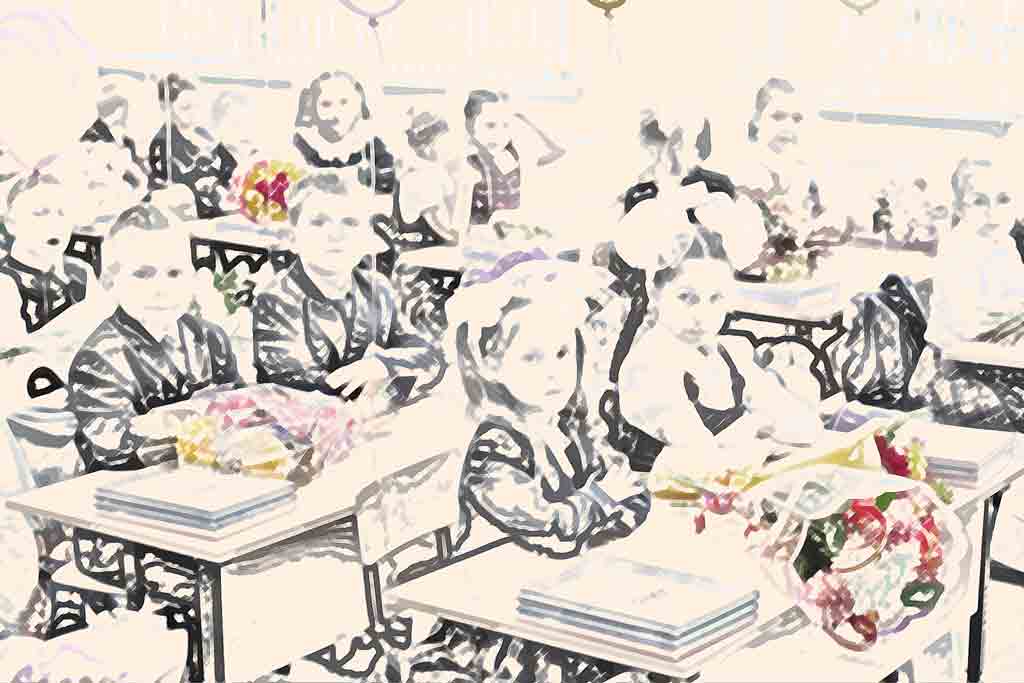The author describes the situation with the admission to Germany of Late Ethnic German Repatriates. Special attention is paid to the amendments to the notorious § 5 of the Federal Law on Refugees and Exiles (Bundesvertriebenengesetz – BVFG) that complicates the immigration of the high educated Russia-Germans from the post-Soviet states to Germany.
The New Amendment to the Law on Late Ethnic German Repatriates is a New Deception of Russia-Germans
After the adoption in 2013 of a new law (or amendments to the existing Federal Law on Refugees and Exiles [Bundesvertriebenengesetz – BVFG]), the Federal Office of Administration (Bundesverwaltungsamt – BVA), which also deals with the admission of the Late Ethnic German Repatriates, warned that now the annual number of German repatriates entering Germany could again reach six-digit numbers, that is, at least one hundred thousand annually. The BVA officials, of course, knew what they were saying, because they knew the criteria by which families of Russia-Germans had so far been denied admission and what obstacles had to be removed by the adopted amendments.
The BVA’s information caused concern in left-wing political circles and in the press, but they were reassured by politicians of the ruling parties (the country at that time was ruled by a grand coalition of the CDU and the SPD), who said that an increase in the number of the Late Ethnic German Repatriates was envisaged not to exceed more than 4,000 people a year.
And here are the statistical figures for the admission of Germans from the former USSR:
In 2012, 1,830 people were admitted.
In 2013, the year the new law was adopted, 2,429 people were admitted.
In 2014, a year after the law had been passed, we see a figure of mere 5,619 people instead of 100,000.
In 2015 – 2016, six thousand people each year.
2017 – 2018 seven thousand people each year.
At the same time, those same politicians try to convince the public that all restrictions have been lifted, and now only the laziest ones, unable to learn the language, cannot come. At first glance, this could be trusted on having perceived what opportunities do open up: the “B1 Test” (the German Language Exam Level B1 of the Common European Framework of Reference for Languages – CEFR) can be retaken. The German language studied at language courses (“Sprachkurse”) could be sufficient to get the admission permit; no knowledge of “a German dialect” is required as a proof that the language was obtained in the family.
The resident in Germany Late Ethnic German Repatriate who had been allowed to come to Germany in compliance with § 4 of the Federal Law on Refugees and Exiles may also later apply for the admission of his or her child or grandchild who has/have remained in the post-Soviet states; They may come as descendants of a Late Ethnic German Repatriate (§ 7 of BVFG). It is even possible to change the nationality by taking the German nationality of one of the parents and this will be recognized.
Taking all this into consideration, one could really be confident that there aren’t any obstacles left regarding the repatriation of Ethnic Germans. But is this true?
Why do the “Open Gates” Remain Closed?
And now I will show how of the 100,000 that the representatives of the Federal Office of Administration (BVA) talked about, only 7,000 per year (7% of the promised) are actually left.
The first, largest group of persons for whom the gates to Germany were closed were young people from families who, from 1996, when the German language Test (“Sprachtest”) was introduced, and until 2013, when the “new law” was passed, tried to break through to Germany, but were refused because of the failed “Sprachtest”; i. e. they were not able to demonstrate the knowledge of the dialect and were refused with the wording “the language was not obtained in the family” or “insufficient knowledge of the language”. This meant then that all family members and their descendants cannot be recognized as Late Ethnic German Repatriates.
And now, when all this seemed to have been cancelled and young people whose ancestors in the 1990s received refusals to be recognised as Late Ethnic German Repatriates could acquire the sufficient knowledge of German language at language courses, and independently submit their applications for admission to the BVA, it has turned out that everything is not so simple.
As a rule, these young people receive from the BVA something like this: “You have already been included in the application (Antrag) of your grandfather / grandmother, parents, so they must submit an application for reviewing of their case, again pass the “B1-Sprachtest” and then you can come with them. There‘s no other way.“ Grandparents or parents who did not pass the “Sprachtest” in the 1990s, when they were, for example, 50 years old, of course, would not pass it now, and in most cases will even refuse the attempt to retake it today, when they have become even 20 years older. And this means that young people today have no chance to come to Germany as Late Ethnic German Repatriates, as the case has been earlier.
And then the question arises: if more proof is required that the language was acquired in the family and, as it has been postulated by the “new law”, every young person with German roots can learn the language in language courses, pass the “sprahtest” and come to Germany, then how to understand the requirement that the “sprachtest” has to be passed by parents or grandparents? What really then has changed with the adoption of this “new law”?
It should be noted right away that all those born after December 31, 1992, that is, all those who are under 27 years of age today, according to the law that came into force on January 1, 1993, are not entitled to claim the status of a Late Ethnic German Repatriate at all.
Reunification of Families
The new law of 2013 (actually the amendments to the Federal Law on Refugees and Exiles), which supposedly opened up the possibility for family reunification, is also a set of bureaucratic hooks, as a result of which the possibility of reunification has opened up only for a very small part of the divided families. Since 1993, the application for admission (Antrag) had to be submitted in line with the following tenets:
• The applicant who applied for the status of a Late Ethnic German Repatriate was usually an older member of the family or a family clan;
• All other members of the family or a family clan, often in three generations – a spouse, children and spouses of the children, grandchildren and spouses of grandchildren, great-grandchildren were entered into his application (Antrag).
Why am I pointing this out? The fact is that:
Only the applicant can submit the application for family reunification, that is, to enter a family member who remained for any reason in the places of former residence in his application for admission. Consequently, if the applicant has passed away during these 20–25 years, then no one from his family members, who live in Germany, can no longer call the family members who remained in places of former residence. Thus, most of the torn families are a priori have been deprived of the opportunity to avail themselves of the newly adopted law on “Family Reunification”.
If the applicant (and these are usually very elderly people) has applied for family reunification and died during the processing of his or her documents, and even if the Federal Office of Administration (BVA) has already issued an “admission decision”, it will cancel this decision. Here we should show the actions of the BVA in Friedland*. Before issuing an “admission decision” to family members left in the post-Soviet states, BVA officials send a request to the applicant’s place of residence in Germany to get convinced that he or she is still alive. If this is confirmed, then a “decision on admission” is issued. After 2–3 months, when the person/family that had been invited arrive/s in Friedland, they are forced to confirm once again that the applicant is still alive (provide a certificate from the applicant’s place of residence). And if it turns out that the applicant, maybe two days ago, passed away, the decision on admission is immediately cancelled and the invited family / persons must leave Germany. This is despite the fact that one of the parents and all the other members of the family already live in Germany.
If a family of Russia-Germans came to Germany before 1993, its members do not have the right to avail themselves of the newly adopted law on “Family Reunification”. Here, in my opinion, the reason lies in purely bureaucratic interpretations of the Federal Law on Refugees and Exiles (§ 116 BVFG), and formal changes in the application form of “Antrag”, but this was the basis for cutting off another part of the Russia-Germans denying them the possibility of returning to their historical homeland.
The applicant shall have the right to apply for reunification only if the invited family member was born no later than on 31 December 1992. The question immediately arises: upon what grounds was this date stipulated? According to the adopted amendments to the mentioned law, which entered into force on January 1, 1993, it is stipulated that a person born after December 31, 1992 cannot make a claim to the status of a Late Ethnic German Repatriate (§ 4 of the BVFG), but this does not apply to the descendants of a Late Ethnic German Repatriate (children and grandchildren with § 7 of the BVFG). It is not clear why, in the new law on family reunification, this date was applied to the invited family member who receives § 7 (descendant of a Late Ethnic German Repatriate)?..
Again, we see a deliberately created hook that is used to keep the gates closed whilst they are declared open.
Admission of Late Ethnic German Repatriates to Germany
Another interesting point in the new amendments to the law of 2013 should be noted. Now mixed families, whose German roots in two or three post-war generations go through the female line, and therefore they were not carriers of German surnames and were not written in the documents as Germans and, consequently, do not appear in the statistics as Germans, were able to change their nationality to German (if there is confirmation that, for example, the grandmother was German) and, on the basis of the Federal Law on Refugees and Exiles, apply for admission to Germany. Previously, they were deprived of such an opportunity at all, since they were not listed as Germans in the documents.
A fair decision! Of course, the rights of these families should not be infringed upon, just because their German roots are in the female line! At the same time, it should be noted that there are approximately 500,000 Russia-Germans still living in the post-Soviet states and they are listed in the statistics as “documented” Germans; now the number of those who theoretically could make avail of the Federal Law on Refugees and Exiles could be doubled and reach about a million people. The admission to Germany annually of six or seven thousand Germans from the post-Soviet states means that in percentage terms the admission of German immigrants practically equals zero, makes up less than 1 per cent (to be more exact – 0.7%).
In addition, it should be taken into consideration that half of these seven thousand people are already those who have managed to change their nationalities in documents on grounds of the corresponding court decisions. It means in effect that no more than 3,000–3,500 Germans, who are taken into account by statistics as such, are coming to Germany from the post-Soviet states annually. This loss is equalized by a natural birth rate, which means that the statistics on the number of Germans living in the post-Soviet space remain at the same level; it suits the politicians of Germany and Russia, for whom the Russia-Germans have become a pretext for their multi-million-dollar business affairs.
So, the adopted amendments to the law of 2013 and all the statements that all restrictions have now been lifted for Russia-Germans – who can document their German origin, the fact of repression to which the family was subjected to and would pass the “Sprachtest” – the road to Germany is open, turned out to be nothing more than another deception on the part of politicians of the ruling parties of Germany.
§ 5 or Adverse Selection** of Russia-Germans?
The Federal Office of Administration (BVA) responsible for the admission of Late Ethnic German Repatriates to Germany responded to my inquiry concerning the criteria by which an applicant could fall under stipulations of § 5 of the BVG (“high official position / service to a totalitarian regime”).
The reason for the inquiry was the case of refusal to grant the status of a Late Ethnic German Repatriate to a Russia-German woman, whose father was deported to Kazakhstan, and since 1956 he had begun to work as a teacher (taught mathematics) in a rural school in one of the Kazakh villages of the Akmola region***, and later became the director of the same school, working in it till his retirement the 1990s.
As might be expected, the Federal Office of Administration does not have clear criteria for determining who could fall under stipulations of § 5 of the BVFG (“high official position / service to a totalitarian regime”). There are only very approximate parameters, and then everything is determined at the discretion of the clerk processing the applicant’s documents.
And if there is an instruction from above “Don’t let the Germans into Germany!”, then the reason for the refusal will be found, and it will be very difficult to prove to the official that the refusal is unlawful. But the main thing is that the legal caveat procedure would last for years.
In this particular case, the trial may take place not earlier than mid-2019. How many more millions of illegal migrants from Africa and Asia will Germany accept during this time, provide housing, provide language courses and a full integration package?..
With what array of arguments did the BVA-officers substantiate their refusal of admission? They proceeded from the fact that the teacher in Soviet times, and even the director of the school (the position obliged to be a member of the Communist party) was a propagandist of the Soviet system. That is, according to the logic of the official, the father of that Russia-German woman served the totalitarian regime, and consequently, his daughter enjoyed the privileges of this regime, and therefore she is deprived of the right to acquire the status of a Late Ethnic German Repatriate and, accordingly, prohibited from entering the Federal Republic of Germany.
Absurd, the reader would say – how many such directors of rural schools came to Germany in the 1990s!? There is also a very interesting explanation in the Federal Office’s reply to my inquiry, with the information that, as far as I know, has never been officially communicated to Russia-Germans before and the reasons for these amendments have not been explained.
As we remember, after 1998, after the red-green coalition came to power, the authorities began to sharply reduce the admission quotas of German immigrants. So, on 01.01.2000, the more restrictive guidelines pertaining to the infamous § 5 of the BVG came into force. And the officials were leaning on these new rulings adopted in 2000 substantiating their refusal to grant admission to a Russia-German woman, the daughter of the former director of a rural school.
After these BVA’s amendments have come to my knowledge, I immediately recollected the speech made by Jochen Welt in the “House of Expellees” (Gerhart-Hauptmann-Haus) in Düsseldorf, exactly in the same year 2000. He was then the Federal Government Commissioner for Repatriation Issues and National Minorities (Beauftragter der Bundesregierung für Aussiedlerfragen und nationale Minderheiten) under the red-green government of Gerhard Schröder.
Speaking to representatives of the “Homeland Association of Germans from Russia” (Landsmannschaft der Deutschen aus Russland) and the “Federation of Expellees” (Bund der Vertriebenen), Jochen Welt then loudly threw from the rostrum: “We no longer need tractor drivers and milkmaids, we need Rauschenbachs!”****
The cynicism of this phrase is striking – “… we need Rauschenbachs”, that is, exceptionally highly qualified specialists. But the trouble is that in fact, as it appears, they did not need “Rauschenbachs” either – the government at the same time adopted amendments to the law, which closed the gates not only to the “rauschenbachs”, but in general to all people with higher education who managed to get at least a little promotion in their careers somewhere. However, how far could a Russia-German manage to advance in official capacity of a director of a village school managed? And what privileges of the totalitarian regime could he really enjoy?
By the way, about tractor drivers and milkmaids: our tractor drivers, drivers and locksmiths, who can take to pieces a tractor or a car to the smallest part to find out a defect unit, and then put them together to have the machine properly functioning, have successfully mastered the complicated workbenches and gadgets in German plants and are in great demand today on the labour market. Our women make up the lion’s share of collectives in German hospitals and nursing homes. Their professions, which they acquired there and mastered here, have turned out to be very popular in Germany.
As we can see, § 5 of the BVG has been successfully used to prevent the return of the Russia-Germans with higher education, as well as their descendants, who, as a rule, in their majority are also educated people, to their historical homeland.
In this regard, I want to draw attention to another event. The other day, the Federal Government Commissioner for Repatriation Issues and National Minorities, Bernd Fabritius (until recently, he had been heading the Federation of Expellees (Bund der Vertriebenen –BdV), gave an interview to journalist Nikita Zholkver. The autobiography of this journalist is rather remarkable. Nikita Zholkver was born in Moscow in 1959, his father Alexander Zholkver worked as a correspondent for the USSR State Television and Radio in the GDR. In 1981, Nikita Zholkver graduated from Moscow State Institute of International Relations (MGIMO) as specialist for international journalism. He worked in the press of the USSR and Russia. Since 1992 he’s been working in the editorial office of the German public state-owned international broadcaster “Deutsche Welle” (“German Wave”). That is, if Nikita Zholkver were a Russia-German, he would have had this infamous § 5 with the gates to Germany permanently closed. But he belongs to another ethnic group of immigrants from the former USSR and with this person, who is a hereditary Soviet propagandist, the German Commissioner for Repatriation Issues is discussing the question of how to work correctly, or rather to conduct the propaganda necessary for the government among Germans from the former USSR.
By the way, it should be noted that at the end of the interview, both come to a joint opinion that it is necessary to talk to them, that is, to us, in Russian. The message of this interview is clear – funds are being knocked out to finance the next Russian-language media project. This is what I call “adverse selection“, when people with higher education from among Russia-Germans, up to a rural teacher from a Kazakh aul,***** as well as children of this teacher, are cut off forever from the possibility to immigrate to Germany because of the stipulations of § 5. But the former high-ranking superiors of that teacher, who, on the basis of belonging to a special ethnic group, easily changed Moscow to Berlin; they are trying to position themselves as new elite that should attend to the “bringing-up of Germans from Russia”. And with all this, politicians of the mainstream parties probably believe that the Russia-Germans should not be outraged by such a large injustice.
No, we say – we are outraged by this, and we cannot agree with this. And you should not spend money on meaningless educational and propaganda projects, whether in German, or in Russian – they will not give any positive results. Instead of that, the burning issues of the suffering-stricken people have to be faced and solved, and one of the most important among them is the problem of the torn apart families of the Russia-Germans, and to do it for real.
Andrei Triller
Andrei Triller is a German journalist.
He is a profound expert in the microhistory of Russia-Germans.
Notes
* The Friedland border transit camp is located in the Lower Saxony municipality of Friedland in the district of Göttingen. The border transit camp was built by the British occupying forces on the site of the agricultural research institute of the University of Göttingen, which had been outsourced to Friedland, and put into operation on 20 September 1945. Currently, the border transit camp Friedland is a location of the State Reception Authority of Lower Saxony. It is also called the Gateway to Freedom. The documents of the Late Ethnic German Repatriates are being processed in Friedland. They have to register in Friedland after their arrival in Germany.
** “In economics, insurance, and risk management, adverse selection is a market situation where buyers and sellers have different information. The result is that participants with key information might participate selectively in trades at the expense of other parties who do not have the same information.” (https://en.wikipedia.org/wiki/Adverse_selection)
*** Akmola Region (Kazakh: Aqmola oblysy) is a centrally located region of Kazakhstan. Its capital is Kokshetau. The region’s population is 715,000; the area is 146,200 km2
**** Boris Viktorovich Rauschenbach (1915–2001) was a preeminent Soviet physicist and rocket engineer, who developed the theory and instruments for interplanetary flight control and navigation in 1955–1960s. He is also notable for his studies in Christian theology and theory of Art; s. also p. … of this book.
***** An aul is a type of fortified village or town found throughout the Caucasus mountains and Central Asia.




